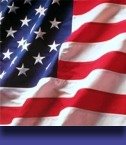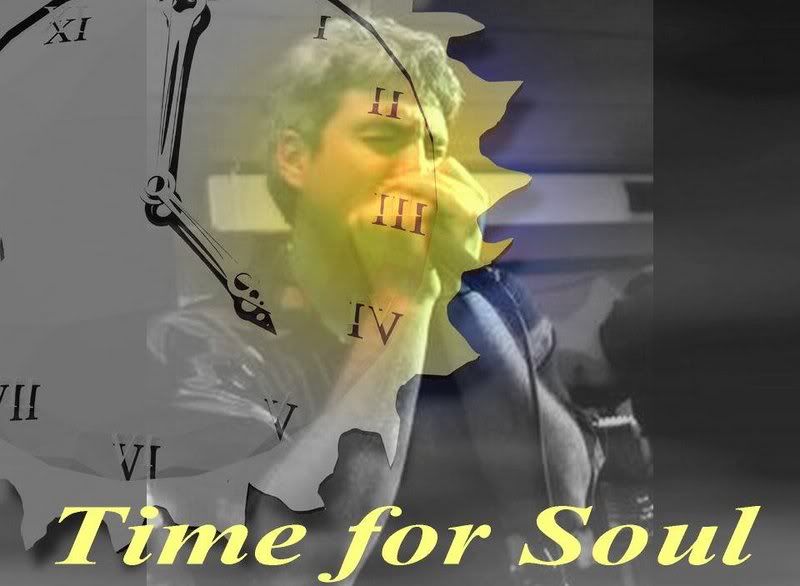"BOYCOTT"~" THE NEW YORK TIMES"~ ! ~THEY REALLY REALLY SUX !
 GOD BLESS AMERICA !!
GOD BLESS AMERICA !!Lawmaker Wants Papers Probed Over Stories
Jun 25 11:56 AM US
By DEVLIN BARRETTAssociated Press Writer
WASHINGTON
The chairman of the House Homeland Security Committee urged the Bush administration on Sunday to seek criminal charges against newspapers that reported on a secret financial-monitoring program used to trace terrorists.
Rep. Peter King cited The New York Times in particular for publishing a story last week that the Treasury Department was working with the CIA to examine messages within a massive international database of money-transfer records.
King, R-N.Y., said he would write Attorney General Alberto Gonzales urging that the nation's chief law enforcer "begin an investigation and prosecution of The New York Times _ the reporters, the editors and the publisher."
"We're at war, and for the Times to release information about secret operations and methods is treasonous," King told The Associated Press.
A message left Sunday with Times spokeswoman Catherine Mathis was not immediately returned.
King's action was not endorsed by the chairman of the Senate Judiciary Committee, GOP Sen. Arlen Specter of Pennsylvania.
"On the basis of the newspaper article, I think it's premature to call for a prosecution of the New York Times, just like I think it's premature to say that the administration is entirely correct," Specter told "Fox News Sunday."
Stories about the money-monitoring program also appeared last week in The Wall Street Journal and Los Angeles Times. King said he thought investigators should examine those publications, but that the greater focus should be on The New York Times because the paper in December also disclosed a secret domestic wiretapping program.
He charged that the paper was "more concerned about a left-wing elitist agenda than it is about the security of the American people."
When the paper chose to publish the story, it quoted the executive editor, Bill Keller, as saying editors had listened closely to the government's arguments for withholding the information, but "remain convinced that the administration's extraordinary access to this vast repository of international financial data, however carefully targeted use of it may be, is a matter of public interest."
After the attacks of Sept. 11, 2001, Treasury officials obtained access to a vast database called Swift _ the Society for Worldwide Interbank Financial Telecommunication. The Belgium-based database handles financial message traffic from thousands of financial institutions in more than 200 countries.
Democrats and civil libertarians are questioning whether the program violated privacy rights.
The service, which routes more than 11 million messages each day, mostly captures information on wire transfers and other methods of moving money in and out of the United States, but it does not execute those transfers.
The service generally does not detect private, individual transactions in the United States, such as withdrawals from an ATM or bank deposits. It is aimed mostly at international transfers.
Gonzales said last month that he believes journalists can be prosecuted for publishing classified information, citing an obligation to national security. He also said the government would not hesitate to track telephone calls made by reporters as part of a criminal leak investigation, but officials would not do so routinely and randomly.
In recent months, journalists have been called into court to testify as part of investigations into leaks, including the unauthorized disclosure of a CIA operative's name.
He said the First Amendment right of a free press should not be absolute when it comes to national security.
http://www.breitbart.com/news/2006/06/25/D8IFB4VO1.html
http://article.nationalreview.com/?q=NDVhYWQzMmQ3YWRlNzFkYjRmZmY4ZTQzZmUwZjJhZjI=
Author ArchiveSend to a FriendPrint Version
June 26, 2006, 1:34 p.m.
Stop the Leaks
By The Editors
Every passing week, it becomes more apparent that disgruntled leftists in the intelligence community and antiwar crusaders in the mainstream media, annealed in their disdain for the Bush administration, are undermining our ability to win the War on Terror. Their latest body blow to the war effort is the exposure, principally by the New York Times, of the Treasury Department’s top-secret program to monitor terror funding.
Stop the Leaks 06/26
Window on the Week – 6/23/06 06/23
One of History’s Great Failures 06/21
Shoot It Down 06/21
S.O.S. 06/20
Surging 06/19
Hayward: Icky Balance
Editors: Stop the Leaks
Lott: No Safety Lock
Gokhale: Entitlement-Reform Realities
Christian & Robbins: What Price Government?
McCarthy: They’re Just More Important Than You Are
Logan & Preble: Who Gave Us the World?
Stevens: Planet of the Apes
Krauss & Pham: Our Blind Spot
Seipp: It Happened One Night
Carney: I Am Jack Bauer
Loyola: Run Away! Run Away!
President Bush, who said on Monday morning that the exposure “does great harm to the United States of America,” must demand that the New York Times pay a price for its costly, arrogant defiance. The administration should withdraw the newspaper’s White House press credentials because this privilege has been so egregiously abused, and an aggressive investigation should be undertaken to identify and prosecute, at a minimum, the government officials who have leaked national-defense information.
The Terrorist Finance Tracking Program (TFTP) was initiated soon after the 9/11 attacks. It ingeniously focuses on the hub of interlocking systems that facilitate global money transfers. The steward of that hub, centered in Brussels, is the Society of Worldwide Interbank Financial Telecommunication, or “SWIFT.” SWIFT is an organization of the world’s financial giants, including the national banks of Belgium, England, and Japan, the European Central Bank, and the U.S. Federal Reserve. SWIFT, however, is not a bank. It’s a clearinghouse that manages message traffic pursuant to international transfers of funds.
Intelligence about those communications implicates no legally recognized privacy interests. To begin with, they are predominantly foreign, and international. To the extent the U.S. Constitution might be thought to apply, the Supreme Court held nearly 30 years ago that records in the hands of third parties — including financial records maintained by banks — are not private, and thus not protected by the Fourth Amendment. Moreover, to the extent Congress later supplemented privacy protections by statute, those laws regulated disclosures by financial institutions. SWIFT is not a financial institution.
Despite this legal daylight, the Bush administration has gone out of its way to defer to privacy concerns. Assuming that American law applied, it obtained SWIFT information by administrative subpoena. It carefully narrowed its scrutiny to those transacting with suspected terrorists. It concurred with its international partners that the resulting intelligence should be used only for counterterrorism and security purposes—not for prosecutions of ordinary crimes (even though such prosecutions would be legal under American law). And it agreed to subject the TFTP to independent auditing to ensure that the effort was trained on terrorists.
By all accounts, the program has been a ringing success. The administration maintains that the TFTP has been central to mapping terror cells and their tentacles, and to shutting off their funding spigot. It has resulted in at least one major domestic prosecution for providing material support to al Qaeda. It has also led to the apprehension of one of the jihad’s most insulated and ruthless operatives, Jemaah Islamiya’s Riduan Isamuddin, who is tied to the 2002 Bali bombing.
But as has happened with other crucial counterterrorism tools — such as the NSA’s program to monitor the enemy’s international communications, which the New York Times exposed, and the CIA’s arrangements for our allies to detain high-level Qaeda operatives, which the Washington Post compromised — the TFTP’s existence was disclosed to the Times and other newspapers by anonymous government officials, in violation of their legal obligation to maintain secrecy. The Bush administration pleaded with the newspapers not to publish what they had learned. But these requests, rooted in the national-security interests of the United States, were rebuffed. The Times, along with the Los Angeles Times (which also rejected a government request not to publish) and the Wall Street Journal, ran stories exposing the program. Yes, the public was being protected. Yes, terrorists trying to kill Americans were being brought to heel. Yes, it appears the program is legal. And yes, it appears the Bush administration made various accommodations out of respect for international opinion and privacy concerns. Despite all that, New York Times executive editor Bill Keller concluded that “the administration’s extraordinary access to this vast repository of international financial data, however carefully targeted use of it may be, is a matter of public interest.”
It is a matter of interest mainly to al Qaeda. The terrorists will now adapt. They will find new ways of transferring funds, and precious lines of intelligence will be lost. Murderers will get the resources they need to carry out their grisly business. As for the real public interest, it lies primarily in safety — and what the Times has ensured is that the public today is less safe.
Success in defeating the terrorists at war with us is dependent on good intelligence. Without obtaining it and keeping it secret, the government can’t even find the dots, much less connect them. If the compromising of our national-security secrets continues, terrorists will thrive and Americans will die. It has to be stopped.
The New York Times is a recidivist offender in what has become a relentless effort to undermine the intelligence-gathering without which a war against embedded terrorists cannot be won. And it is an unrepentant offender. In a letter published over the weekend, Keller once again defended the newspaper’s editorial decision to run its TFTP story. Without any trace of perceiving the danger inherent in public officials’ compromising of national-security information (a matter that the Times frothed over when it came to the comparative trifle of Valerie Plame’s status as a CIA employee), Keller indicated that the Times would continue revealing such matters whenever it unilaterally decided that doing so was in the public interest.
The president should match this morning’s tough talk with concrete action. Publications such as the Times, which act irresponsibly when given access to secrets on which national security depends, should have their access to government reduced. Their press credentials should be withdrawn. Reporting is surely a right, but press credentials are a privilege. This kind of conduct ought not be rewarded with privileged access.
Moreover, the Justice Department must be more aggressive than it has been in investigating national-security leaks. While prosecution of the press for publishing information helpful to the enemy in wartime would be controversial, pursuit of the government officials who leak it is not. At the very least, members of the media who report such information must be made to understand that the government will no longer regard them as immune from questioning when it investigates the leakers. They should be compelled to reveal their sources, on pain of contempt.










































1 Comments:
http://www.merrychristmasquotesimageswishes.com/
Christmas is an annual festival commemorating the birth of Jesus Christ, observed most commonly on December 25 as a religious and cultural celebration among billions of people around the world. A feast central to the Christian liturgical year,merry christmas wishes images it is preceded by the season of Advent or the Nativity Fast and initiates the season of Christmastide, which historically in the West lasts twelve days and culminates on Twelfth Night in some traditions, Christmastide includes an Octave. Christmas Day is a public holiday in many of the world's nations,Happy New Year 2018 is celebrated religiously by a majority of Christians, as well as culturally by many non-Christians, and forms an integral part of the holiday season. In several countries, celebrating Christmas Eve has the main focus rather than Christmas Day.
https://en.wikipedia.org/wiki/Christmas
Post a Comment
<< Home